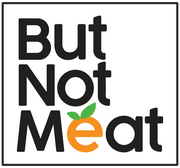
🌱 The History of Plant-Based Eating Across Cultures 🌱
Plant-based diets aren't just a modern fad; they have deep historical roots, stretching across continents and cultures. In this journey through time, we'll explore how various societies have embraced plant-based foods.
🌍 The Ancient World:
From Egypt's use of legumes to the cultivation of grains in Mesopotamia, plant-based foods formed the bedrock of ancient civilisations.
📜 Eastern Traditions:
The concept of 'Ahimsa' in Hinduism and Jainism, as well as Buddhist principles, advocate for a harmonious existence with nature, promoting vegetarianism.
🇮🇹 Mediterranean Influence:
The famous Mediterranean diet, rich in fruits, veggies, and legumes, is rooted in historical eating habits that focus on plant-based foods.
🌶️ Latin America:
Corn, beans, and squash, known as the 'Three Sisters,' formed the dietary foundation of ancient Mesoamerican cultures.
🍚 Asian Influence:
Plant-based diets are deeply rooted in countries like China and Japan, where tofu, rice, and a variety of vegetables are staples.
🌱 Modern Movements:
From the Rastafarian 'Ital' diet to modern veganism, the evolution of plant-based eating continues to diversify and gain global popularity.
Embrace the Roots, Embrace the Future:
Understanding the deep historical roots of plant-based eating can enrich our own culinary choices and broaden our horizons.
💌 Share Your Story:
We'd love to hear from you! Have you been inspired by the history of plant-based eating? Maybe you have your own cultural or personal story to tell about your journey into the plant-based lifestyle. Share your experiences in the comments or use the hashtag #plantfooddiaries. Let's keep the conversation going!




